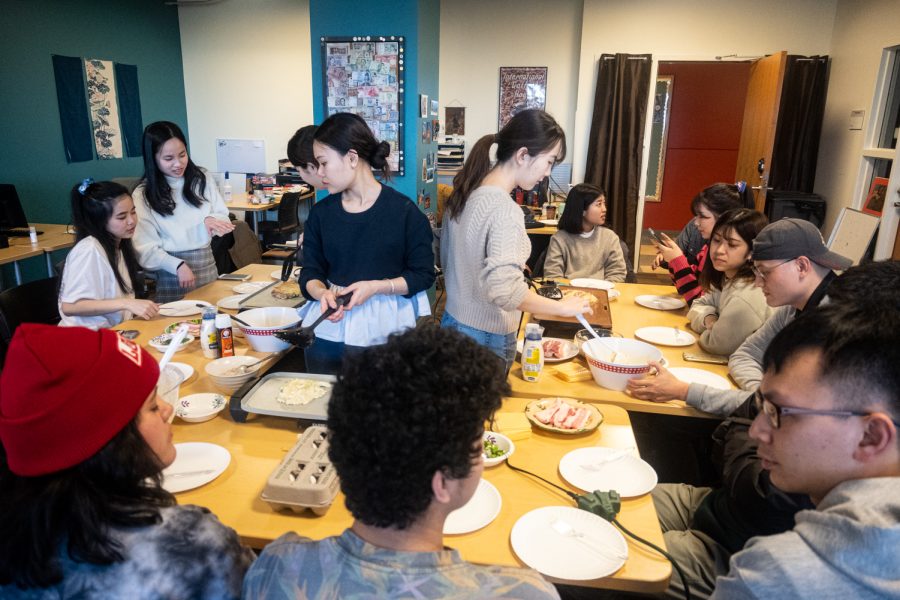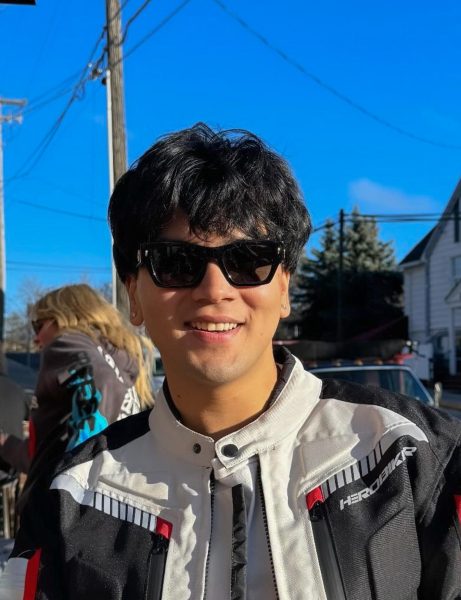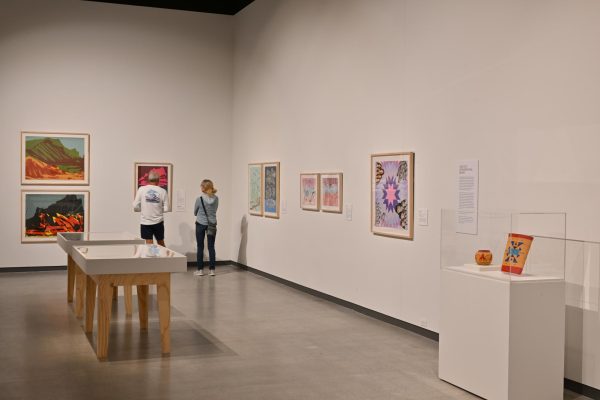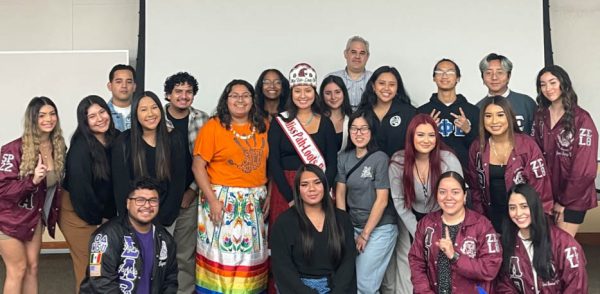Okonomiyaki with the International Center
A cooking demo held by the IC provides wsu with savory hotcakes, community experience
Students at the International Center, located in the CUB, gather around to cook and eat okonomiyaki, a traditional Japanese dish, as part of a series on cooking demos, April 5.
April 7, 2022
On Tuesday, the International center held a special event. A cooking demonstration of Okonomiyaki, a Japanese savory cabbage pancake, was prepared and eaten by all who attended.
Ikumi Yotsukura, senior communication and advertising double major from Japan, led the group and explained how to make the batter. Each of the three tables had an electric griddle to make the hotcakes.
“This is traditional Japanese food and also easy to make in here because we only need cabbage … and I can easily make it by myself,” Yotsukura said. “So, I was just interested in sharing with everyone.”
Okonomiyaki was a simple dish to make; on the tables, toppings and proteins, like pork, eggs and shrimp, were provided.
To make the dish, the proteins were laid on the griddle. The batter, composed of flour, eggs, water and chopped cabbage, was laid on top of the protein.
About a quarter of the way through cooking, the pancake was flipped and then flipped once more to finish. Other savory toppings such as cheese or green onions could be added at the last part of the cooking process.
Lastly was the dressing. The tables had mayonnaise and tonkatsu sauce, a Japanese sweet and savory sauce.
Other common toppings for this dish are nori flakes, pickled ginger and bonito flakes (dried and/or smoked tuna filets), according to Food52.com.
These events are a good way for people to make lasting friendships worldwide. Eating food, especially the same type of food, can help people bond better and easier, said Ayelet Fishbach, professor at University of Chicago, in an NPR recording.
“I think that food really connects people. Food is about bringing something into the body. And to eat the same food suggests that we are both willing to bring the same thing into our bodies,” Fishbach said.
Perhaps this is one reason people enjoy food-based events, especially involving themselves in something they maybe have not tried before.
Janie Chu, sophomore broadcast news major, said that she felt close to people in the IC because of shared experiences.
“I feel like mostly my close friends are in the IC, because I feel like we share the same background” Chu said. “Not like, the same countries … just that we’re studying abroad, and we kind of have the same experiences and struggles, or challenges. So I think we can really talk about a lot of things more than talking to Americans.”

















